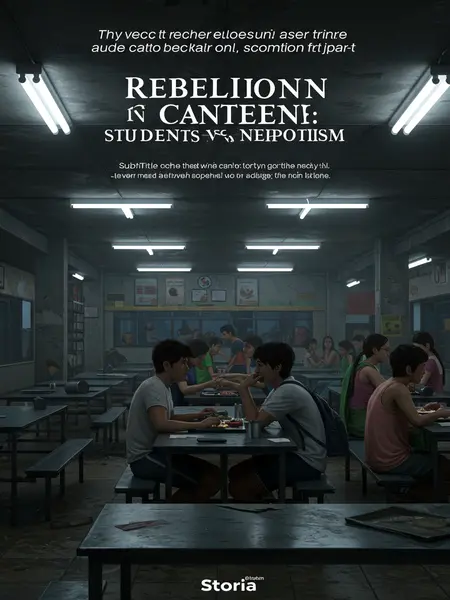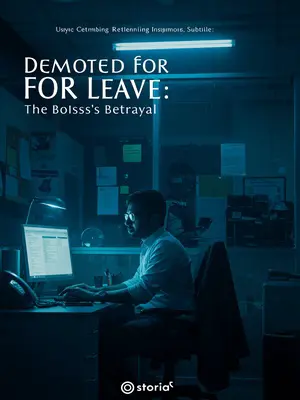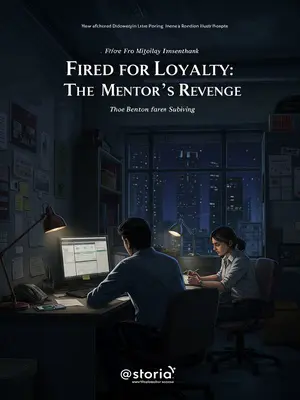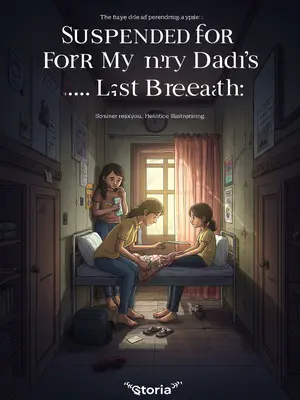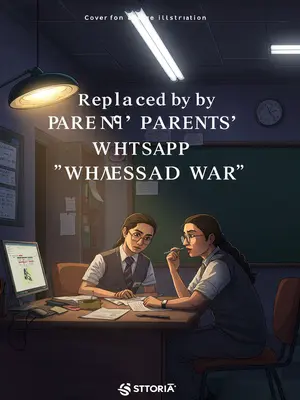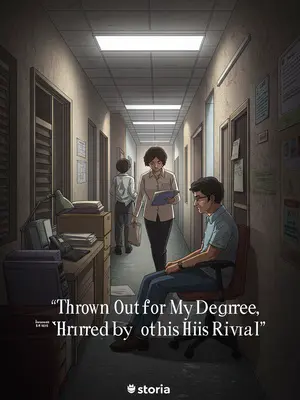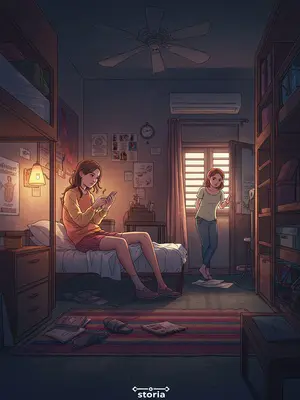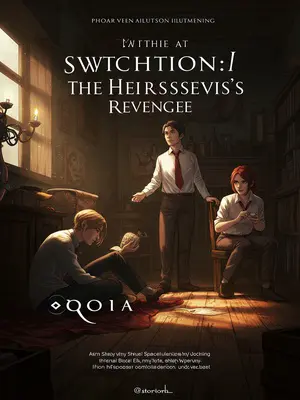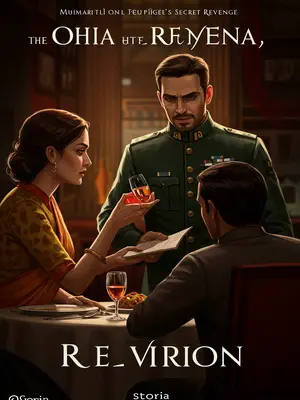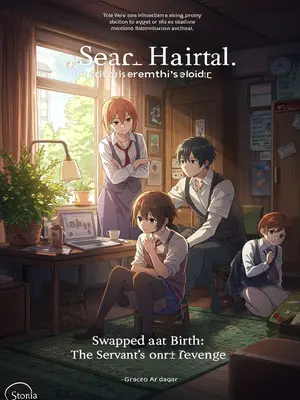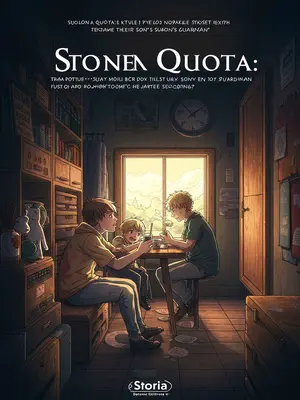Chapter 3: Hungry Hearts, Secret Meals
It’s not like we never complained. Everyone from Class 6 to Class 12 has written in the suggestion book, tried to talk to teachers, even called parents. But nothing ever changes.
The canteen manager is the principal’s relative—nepotism is the family business. Uncle sits at the cash counter, his son mans the juice stall, even the chaiwala is a cousin from the gaon. Complaint letters fly into the suggestion box like confetti at a baraat. Every break, someone slips in a note: ‘Food is disgusting.’ ‘Please check the chicken smell.’ ‘More salt, less water.’ The box is overflowing—looks like Holi colors spilling out.
Backed into a corner, the principal made two changes. First, he put a lock on the suggestion box, shining in the morning sun—a silent message: ‘Keep your opinions to yourself.’ Then, he started giving speeches about the virtue of suffering. “Gandhiji walked barefoot, and you’re fussing about a small bone in the curry?” He actually said, “Suffering builds character.” Is this a school or an ashram?
He always brings up his own childhood—“I ate dry roti, walked five kilometres, and studied under a street lamp.” We’ve heard it so many times, even the crows outside can repeat it. Funny how the ones preaching hardship are always in AC rooms.
We couldn’t afford more punishment, so we kept our heads down, plotting alternatives. Hostellers either ate outside or begged day scholars to bring food. Some days, all I could think of was what my day scholar friend might sneak in: homemade paratha, Britannia cake, samosas from the bazaar.
But then the school chased away all the gate vendors, saying it was for our safety, and started searching day scholars’ bags. If they found food, it was confiscated. One morning, we saw the watchman chasing off the pani-puri bhaiyya. By lunch, there were bag checks—like airport security, but all they found was two aloo bondas and a pack of chips. Gone in seconds.
We were forced to eat Maggi for half a month. The hostel corridors reeked of masala Maggi. At first, heaven—then, torture. Now, even the smell of Maggi makes us want to vomit. If I hear the kettle whistle, my stomach flips. Ma kehti hai, “Ab toh Maggi bhi nahi khaata?” Who knew a classic could become a nightmare?
Where there’s oppression, there’s resistance. Just like in all Indian stories, the oppressed find a way. We’re not heroes, but hunger makes revolutionaries of us all.
One night, I was so hungry my stomach acid bubbled up and my mouth tasted bitter. The tick-tock of the ceiling fan counted the minutes. My stomach grumbled so loudly, I thought the warden would come. Pillow after pillow—nothing helped. All I could think of was mutton biryani, mushrooms, egg fried rice—the forbidden food of dreams. I gnawed my pillow till it was soaked.
Finally, I sat up, blanket off. “Enough is enough. This is not how future engineers should live!” I woke up my roommates and asked, do you want to starve and live, or eat your fill and die? Even the laziest sat up. “Bro, I’d rather go down fighting!” said Akhil, rubbing his belly. Turns out, none of them were really asleep.
We decided: three would stay and cover, three would sneak out to buy food. We drew lots with notebook scraps. Akhil, Sandeep, and I won the ‘adventure’ slot. The others—Ravi, Swati, and Simi—would snore loudly if the warden came.
At eleven, we climbed the hostel wall, hearts thumping. The air outside felt different, cooler, with that tang of freedom and city dust. But the street was deserted—the chaat stalls and egg roll carts were gone, just a dog howling in the distance.
Akhil squatted, clutching a plastic bag, sniffing for leftover pav bhaji. “Arrey, smell this! Pav bhaji ka bhoot hai!” We laughed, the sound echoing in the empty night. Sandeep eyed the dustbin: “If that’s butter chicken, I’ll risk it.” Even the stray dogs eyed us like competition.
We kept searching under orange streetlights, shoes kicking dust, stomachs growling. Halfway, we ran into our class teacher, Mr. Suresh. For a second, my heart stopped—caught! But Sir just shook his head, tiffin in hand. “You kids and your PUBG obsession, haan! What excuse now?”
He dragged us into the park, telling us to hurry back before the warden noticed. “Let’s go, before I lose my job!”
Here’s the truth: our school is strict, and boarders can only go home once a month. It’s in the middle of nowhere, surrounded by fields and buffaloes. After dusk, it’s silent as a grave. Security teams patrol day and night. If you’re caught going to a cyber café, you’re expelled on the spot.
I blurted, “Sir, you’ve got it wrong. We’re just too hungry, we only wanted to get something to eat.” Sir’s face changed—anger fading to worry. My legs gave out and I sat on the ground, defeated. Sir hurried over, concern replacing anger. For a second, the teacher in him won over the disciplinarian.
